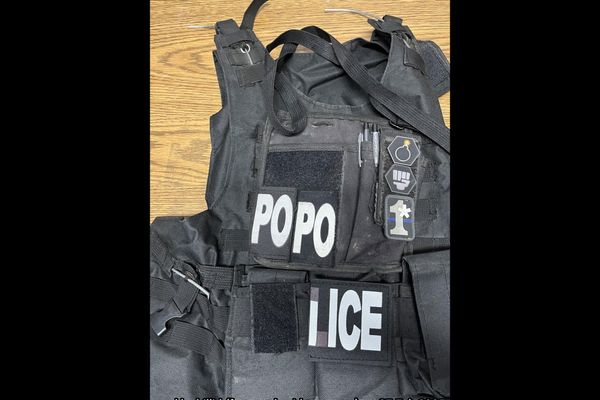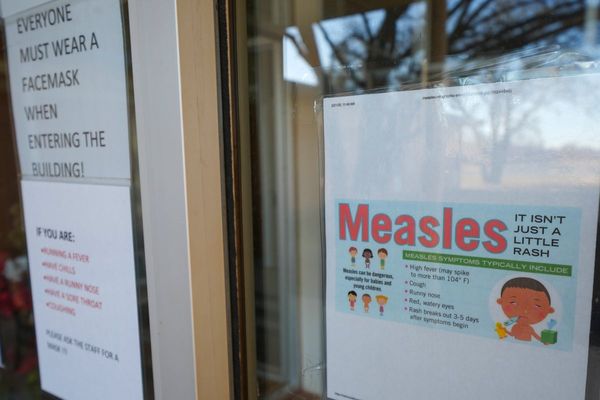
The baby boys legs kick wildly as he lies on the carpet of his parents living room until he manages to roll himself onto his tummy.
His head swivels toward his mom and dad, who are sitting watching him. His gaze meets theirs and from his expression, its clear he wants to be picked up. And right now, please.
Hendr Strauss is eight months old, an age at which most infants would be able to sit unaided.

But Hendr was born without arms and so has to rely on his parents, Mariaan and Hendrik Strauss, to help him up.
“What is it, boetie? Do you want to come and sit here with us,” Mariaan asks before she picks him up and settles him on the sofa between her and Hendrik.
Hendrik puts a teddy bear in front of his son and Hendr grabs the toy between his feet, pulling it towards himself.
In an exclusive interview with the young couple, who married in April 2011, at their home in Hennenman in the northern Free State, about life with Hendr.
“They were thrilled when they discovered they were pregnant with their first child. When the test showed positive, we cried together,” Hendrik said in his recollections of the pregnancy.
They were just as excited when Mariaan went for her first sonar scan at 13 weeks. Little did they know how things would turn out.
“The doctor looked at the sonar for a long time,” Mariaan said about preganancy at the time. “Then he said that he was having trouble seeing the second arm. He referred us to a specialist in Bloemfontein who did a second sonar, three weeks later. He told us our baby didn’t have arms. There was no definitive explanation for why some babies don’t fully develop, the specialist told them. Their best option was to terminate.”
Mariaan and Hendrik fall silent as they remember that day, the only sound to be heard the whooshing of a fan battling the fan battling the Free State heat. Then Mariaan picks up the story.
“I did think about it,” she says.
They both have full-time jobs Mariaan works in the food safety department of a national bakery and Hendrik is a manager at the parts department of a trucking company.
She wasn’t sure they’d be able to care for a child with physical challenges. But Hendrik was sure he didn’t want to go that route.
“Even if I must push my child around in a wheelchair for the rest of his life, I will do it,” Hendrik told Mariaan then. “Even if I have to adjust every possible thing for his comfort, I will do it.”
Mariaan says her choice to have Hendr is now also clear. “If I had to choose today, I would take him just like that, again. Without arms.”
When their baby was born in June last year he weighed 2.8 kg. His parents cried because it was such a beautiful moment.
“A day after his birth his right leg was put in plaster because his foot was turned inwards. He also didn’t have fibula the lower leg bone that supports muscles and nerve endings. Then the big, dark depression hit me,” Mariaan says. “Society is cruel. Will our child ever be accepted? Is he going to be mocked and bullied? The words of the specialist kept running through her head, you’re selfish if you dont abort. You must think of the child. He will never be able to have a normal quality of life.”
She was angry at the time, Mariaan describing the negative emotion.
“I was angry at God for allowing this. There was self-blame and pain. And the fear of the unknown and an uncertain future. Why us? Why our child? You pray, and you ask for a healthy child, but then this happens. After we were told he had no arms, I kept hoping he would have at least stumps, because I’ve seen how some people can get by with just stumps.”
Mariaan was forced to accept the condition Hendr was going to be in at the beginning at his life.
“But he didn’t even have stumps. But when Hendr was three months old, he taught himself to roll from place to place, and it was like a cloud lifted,” Mariaan says. “I realized my child was okay, then I was okay, and the depression went away.”
Hendrik can’t help but to brag about his son. You should see how he rolls these days! If he wants to get to a toy on the other side of the room, he moves. Or he pulls his little legs under him and pushes himself forward. Doctors have confirmed Hendr’s development is proceeding normally, and he’s reaching all his growth milestones on time.
However, his stomach hasn’t grown, and he can drink only 30 ml of milk at a time before he’s full. At night, he wakes up every two hours to be fed and the couples’ family have stepped in to ensure they get a good nights rest at least four days a week.
For two nights Hendr sleeps at the home of his aunt, Chere Greyling, and he spends two nights a week with Mariaan’s mother, Matilda le Roux, who also looks after him during the day.
A specialist in Bloemfontein will examine Hendr’s stomach again later this month and an orthopedist will take another look at his right foot, which still hasn’t formed properly.
“Hendr suddenly starts crying. Wow, boeta, you spit a lot,” says Mariaan as she wipes her little boys mouth and pops in his dummy.
Hendr watches as his father gets up. His face lights up with a smile when Hendrik picks him up and straps him into a harness.
He starts jumping up and down excitedly, and he looks as if he doesn’t have a care in the world. Having support has helped the Strauss family to get through tough times.
Mariaan also belongs to a Facebook group called MomLife, where mothers share the challenges and joys of parenting.
She sometimes reads about the struggles of expectant mothers who also have to decide if they’re going to terminate their pregnancies because their child has a condition of some kind.
“Her heart goes out to them,” she says. “I wish they could hear me when I tell them it’s okay to have a child whose different from society’s idea of normal. Hendr is the greatest gift we could have received.” Hendrik nods in agreement. “Hendr sleeps in his cot next to our bed. When he wakes up, he lies there and smiles at us. And to think I wanted to throw it away because I was scared and insecure. In time, and with more tests, they’ll find out if Hendr can get prosthetic arms. But for now,” says Mariaan, they’re just making things work.
“Just the other day,” she says, Hendrik jokingly remarked it’s strange for him to see babies with arms. What is abnormal for other people is normal for us. “If I had to choose today, I would take him just like that, again.”
Produced in association with Magazine Features ZA







